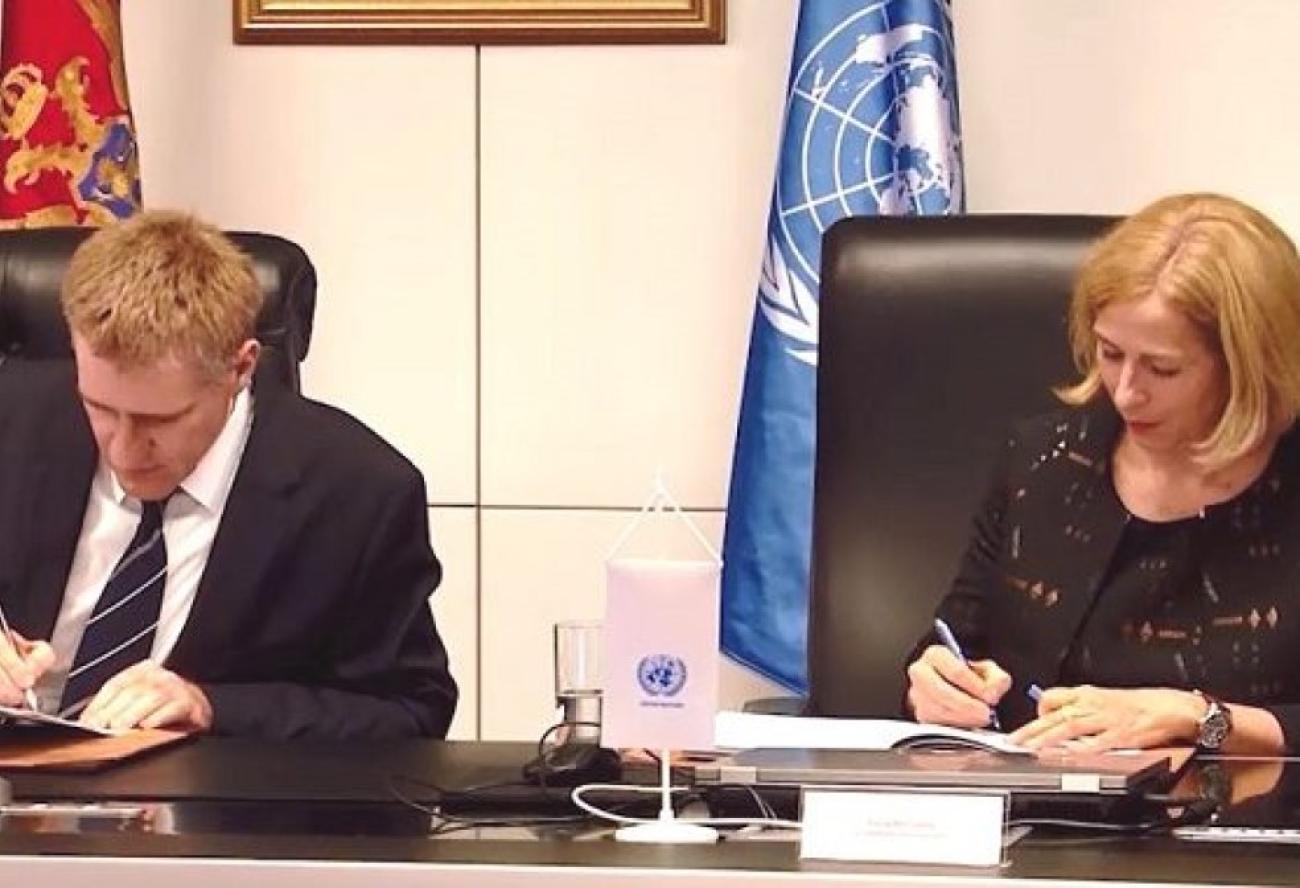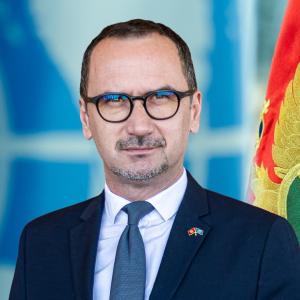The new strategic programme of cooperation between the Government of Montenegro and the UN for the period 2017-2021, which is in line with recently adopted global Agenda on Sustainable Development and country’s aspiration to accede to the EU, was signed today.
It is designed to take full advantage of the combined knowledge and resources of the UN Organisations working under the “Delivering as One” modality and sustain the results of the current UN Programme, which ends this year.
“Together we worked hard over the course of last year on identifying key challenges and on defining vision of Montenegro by 2021,” said Igor Lukšić, Deputy Prime Minister and Minister of Foreign Affairs and European Integration, expressing his pleasure for the adoption of the new strategic document.
"The new Integrated UN Programme 2017-2021 evidently recognizes the needs and challenges for the country’s development over the next five years."
Igor Lukšić, Deputy Prime Minister and Minister of Foreign Affairs and European Integration of Montenegro
“The new Integrated UN Programme 2017-2021 evidently recognizes the needs and challenges for the country’s development over the next five years. Strategic goals are clearly defined and if we achieve them, in 2021 we will be able to say that Montenegro is a country with significantly improved institutional system and service provision, which will lead to a greater quality of life of people in Montenegro,” said Lukšić. He also underlined that the new strategic vision additionally strengthens collaboration of the UN and the Government within the Delivering as One framework.
"Together we managed to identify four priority areas of future cooperation: Democratic Governance; Environmental Sustainability; Social Inclusion and Economic Governance”.
Fiona McCluney, UN Resident Coordinator in Montenegro
The UN Resident Coordinator in Montenegro, Fiona McCluney, highlighted that “through the well-structured, participatory and innovative process of long term planning, together with the partners from the Government and civil sector, we managed to identify four priority areas of future cooperation: Democratic Governance; Environmental Sustainability; Social Inclusion and Economic Governance”.
She also stated that, over the next five years, the UN will ground its partnership in support for the implementation and monitoring of the existing national strategies and policies. “We will do it through targeted research and analysis to support evidence based decision making, through drawing on global best practice, through innovation and state of the art communication to promote behavioural change and with a special focus on long term capacity development,” said McCluney.
Representatives of eight line ministries and UN organisations that guide and oversee the implementation of UN’s activities in the country commended joint results during the perios 2012-2016 amounting to the overall delivery of 62 million USD.
Participants also reviewed results of the Programme implementation in 2015 which saw delivery in the amount of 11.6 million USD and approved the 2016 UN Work Plan aiming to reach the delivery of 12,7 million USD.



















